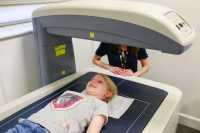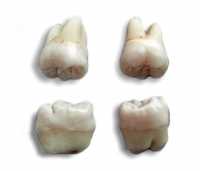Atopic Dermatitis: Antibiotic Choice in Pediatric Superinfections
Slower Working Memory in Adolescence Associated With Motor Vehicle Crashes
Adolescent Inflammation Associated with Premature Mortality
Blood Biomarker Appears to be Good Biomarker to Detect Mild Brain Injuries
- 1) those with concussion,
- 2) those who hit their head but had no symptoms (subconcussive), and
- 3) those who injured their bones but did not hit their head (no concussion).
US Pediatric Tuberculosis Rates Higher in Children Born in Endemic Countries
Viaskin® Peanut: BLA License for Treatment of Peanut-Allergic Children Submitted to FDA
 Dr. Green discusses the recent announcement that DBV Technologies is submitting a BLA for Viaskin Peanut to the FDA.
MedicalResearch.com: What is the background for this announcement? How common is peanut allergy in children?
DBV Technologies is a global clinical-stage biopharmaceutical company whose mission is to improve the lives of patients with food allergies and other immunological diseases through our investigational epicutaneous immunotherapy technology platform. For more than 15 years, we’ve been striving to deliver transformative treatments for patients suffering with the burden and life-threatening risk of food allergies.
On August 7, 2019 DBV announced the submission of its Biologics License Application (BLA) to the U.S. Food and Drug Administration for Viaskin® Peanut for the treatment of peanut-allergic children ages 4 to 11 years. This submission addressed the additional data needed on manufacturing procedures and quality controls which were communicated by the FDA in December 2018, when DBV voluntarily withdrew its prior BLA submission for Viaskin Peanut.
Peanut allergy is one of the most common food allergies and can cause severe, potentially fatal allergic reactions, including anaphylaxis. In the United States, nearly one million children suffer from a peanut allergy.[1] Fear of life-threatening reactions triggered by accidental peanut exposure during everyday activities may lead to significantly increased anxiety and decreased quality of life for patients and their families.[2,3,4]
Currently, avoidance and readiness to manage accidental exposure reactions remain the standard of care.
At DBV, we are committed to finding treatments that will help address the urgent unmet medical need of those suffering from food allergies, including peanut allergy, and our mission is to improve the lives of those patients and their families.
(more…)
Dr. Green discusses the recent announcement that DBV Technologies is submitting a BLA for Viaskin Peanut to the FDA.
MedicalResearch.com: What is the background for this announcement? How common is peanut allergy in children?
DBV Technologies is a global clinical-stage biopharmaceutical company whose mission is to improve the lives of patients with food allergies and other immunological diseases through our investigational epicutaneous immunotherapy technology platform. For more than 15 years, we’ve been striving to deliver transformative treatments for patients suffering with the burden and life-threatening risk of food allergies.
On August 7, 2019 DBV announced the submission of its Biologics License Application (BLA) to the U.S. Food and Drug Administration for Viaskin® Peanut for the treatment of peanut-allergic children ages 4 to 11 years. This submission addressed the additional data needed on manufacturing procedures and quality controls which were communicated by the FDA in December 2018, when DBV voluntarily withdrew its prior BLA submission for Viaskin Peanut.
Peanut allergy is one of the most common food allergies and can cause severe, potentially fatal allergic reactions, including anaphylaxis. In the United States, nearly one million children suffer from a peanut allergy.[1] Fear of life-threatening reactions triggered by accidental peanut exposure during everyday activities may lead to significantly increased anxiety and decreased quality of life for patients and their families.[2,3,4]
Currently, avoidance and readiness to manage accidental exposure reactions remain the standard of care.
At DBV, we are committed to finding treatments that will help address the urgent unmet medical need of those suffering from food allergies, including peanut allergy, and our mission is to improve the lives of those patients and their families.
(more…)Low Vitamin D in Childhood Associated with Behavioral Problems in Adolescence
Despite Progress, Dalit in India Still Suffer From Excessive Pediatric Mortalitiy
Lavender Oil Linked to Abnormal Breast Development in Girls and Boys
Could Prenatal Fluoride Exposure Lower IQ Scores?
Microbiome in Children Associated With Mode of Delivery at Birth
Predicting Sudden Death in Children with Hypertrophic Cardiomyopathy
Tonsillectomy: Over Half of Children Have Opioid Prescription Filled
Early Puberty Linked to Stronger Bones
C. difficile Exposure During Infancy May Protect Against Later Infections
Vitamin D Supplements During Pregnancy Linked to Decreased Tooth Enamel Defects in Children
Application of Romulus and Remus Hypothesis Can Help Autistic Children Improve Language Skills
Prenatal Caffeine May Impact Infant’s Liver
Fewer Cough & Cold Meds Prescribed for Kids, but More Antihistamines
Children With Greater Exposure to Bisphenols More Likely To Be Obese
Teens: Nonmedical Prescription Opioid Use Associated With Subsequent Heroin Use
Preterm Babies Less Likely To Have Romantic Relationships as Adults
No Cognitive Deterioration Found After Two Years of Youth Football
Type 1 Diabetes in Children Alters Brain Growth and Function
Do New Medical Marijuana Laws Increase Teen Use of Cannabis?
Zero-Calorie Sweeteners During Pregnancy Can Impact Offspring’s Microbiome
Since sweeteners are known to be passed on in small amounts via the placenta and breast milk, we asked whether...
How Well Did California’s Interventions to Improve Vaccination Rates Work?
Atomwise Launches AI-Powered Virtual Drug Screening Program for Pediatric Cancers
 Abraham Heifets, PhD
Department of Computer Science
University of Toronto
MedicalResearch.com: What is the background for this announcement? How many children and adolescents are affected by pediatric cancer?
Response: Cancer is diagnosed in more than 15,000 children and adolescents each year. Many cancers, including pediatric cancer, do not have effective treatments and for those that do, it is estimated that 80% have serious adverse effects that impact long-term health.
(more…)
Abraham Heifets, PhD
Department of Computer Science
University of Toronto
MedicalResearch.com: What is the background for this announcement? How many children and adolescents are affected by pediatric cancer?
Response: Cancer is diagnosed in more than 15,000 children and adolescents each year. Many cancers, including pediatric cancer, do not have effective treatments and for those that do, it is estimated that 80% have serious adverse effects that impact long-term health.
(more…)Childhood Abuse More Likely With Male Caregiver, especially Mother’s Boyfriend
MedicalResearch.com Interview with:
Amanda Fingarson, DO Attending Physician, Child Abuse Pediatrics Ann and Robert H. Lurie Children’s Hospital of Chicago Assistant Professor of Pediatrics Feinberg Northwestern School of Medicine
MedicalResearch.com: What is the background for this study? What are the main findings?
Response: Child physical abuse is a substantial pediatric public health issue, with significant morbidity and mortality. Studies have found that men, particularly children’s fathers and mothers’ boyfriends are common perpetrators of physical abuse. There is still a lack of knowledge, however, about the specific caregiver features that increase a child’s risk for physical abuse.
Our study design was unique, in that it was a multi-center study that compared young children with abusive and accidental injuries. Our primary finding was that abuse was much more likely when a male caregiver was present, and the resulting injuries were more likely to be severe or fatal. The presence of the mother’s boyfriend was the riskiest scenario, with the highest likelihood of abuse. Similarly, we found that caregiver relationships of less than 1 year increased the odds of abuse. Overall, the likelihood of abuse with female caregivers was much lower, with the exception of female babysitters. A final important finding of our study was that caregiving arrangements that were different than usual at the time of injury were at increased risk of abuse, suggesting that a stable and consistent caregiver is also important. (more…)





























